7 Things You Need to Avoid in Anaemia!
By Dr. Vishesh Bharucha +2 more

Get,

to manage your symptom
Get your,


4 Cr+ families
benefitted

OTP sent to 9988776655



You’ve successfully subscribed to receive
doctor-approved tips on
Whatsapp

Get ready to feel your best.

Hi There,
Download the PharmEasy App now!!


Register to Avail the Offer
Send OTPBy continuing, you agree with our Privacy Policy and Terms and Conditions

Hi There,
Sign up on PharmEasy now!!
Trusted by 4 crore+ families

OTP sent to 9988776655



You have unlocked 25% off on medicines




Code: NU25
By Dr. Vishesh Bharucha +2 more
Table of Contents
Anaemia is a condition where the number of red blood cells (RBCs) or their oxygen-carrying capacity (due to low haemoglobin) is insufficient to meet the body’s physiological needs. This may result from decreased production of red blood cells, increased destruction of these cells, or blood loss, whether sudden or ongoing. Common causes include nutritional deficiencies, such as iron deficiency, chronic illnesses, or disorders affecting the bone marrow.
Anaemia can be acute or chronic, mild or severe, and it affects individuals across all age groups. It is one of the most widespread nutritional deficiencies globally and is considered a major public health concern. While anaemia itself may be manageable, it can also indicate an underlying medical condition and should be assessed by a qualified healthcare professional. With appropriate medical advice and care, steps may be taken to manage the condition and, in some instances, reduce the risk of its occurrence1.
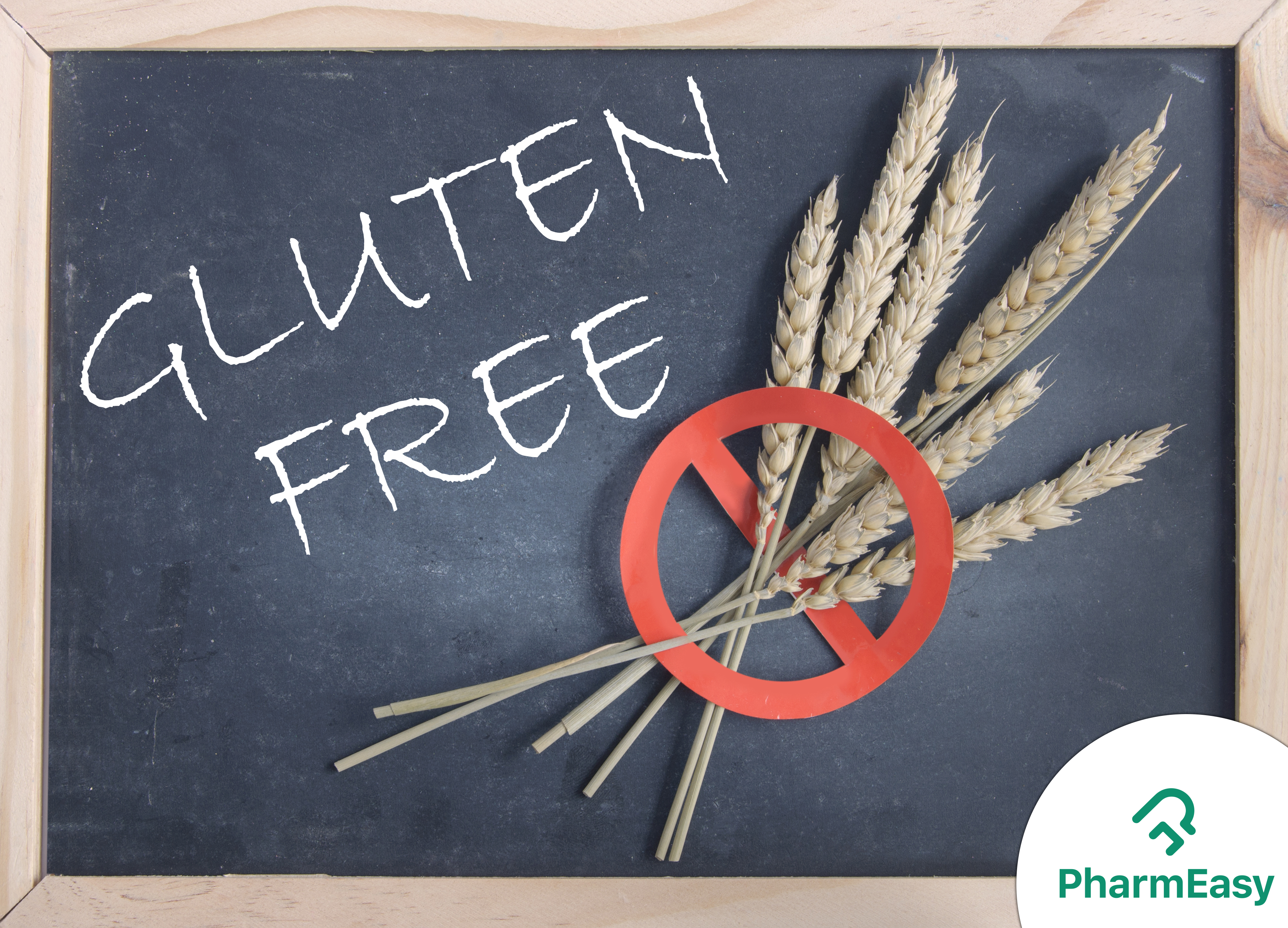
There are a lot of signs and symptoms that may indicate anaemia and may include the following2:
Many individuals take calcium and iron supplements, particularly when managing nutritional deficiencies. However, it is important to note that calcium and iron should not be taken at the same time, such as together at breakfast, lunch, or dinner, as each can interfere with the absorption of the other. Calcium may reduce the absorption of iron, and vice versa, potentially diminishing the effectiveness of both supplements2. To support absorption, it is generally recommended to take these supplements at different times of the day, as advised by a healthcare professional.
Anaemia can be caused by other reasons other than iron deficiency. These include:
Some individuals develop a type of anaemia known as pernicious anaemia, which occurs when the body is unable to absorb vitamin B12 due to a lack of a substance called intrinsic factor, produced in the stomach. Without sufficient vitamin B12, the body cannot produce healthy red blood cells effectively. Another related condition is folic acid deficiency anaemia, which results from a deficiency of vitamin B9 (folate). While both conditions are classified as megaloblastic anaemias, a term that refers to the presence of abnormally large red blood cells, they are distinct in cause and treatment. It is important to note that folic acid deficiency anaemia should not be grouped with pernicious anaemia, even though they share similar characteristics. Accurate diagnosis is essential, as each condition requires specific management under the guidance of a healthcare professional2.
Haemolytic anaemia is a condition in which red blood cells are destroyed faster than the body can replace them. In some cases, this may result from the body producing abnormally shaped or defective red blood cells that break down prematurely. This can be due to inherited (genetic) conditions. However, not all cases involve faulty red blood cell production. Haemolytic anaemia may also arise from external or acquired factors that damage otherwise normal red blood cells. Causes can be broadly classified into two types: intrinsic (genetic) causes, such as membrane disorders, enzyme deficiencies like G6PD deficiency, or inherited conditions like thalassaemia and sickle cell disease; and extrinsic (acquired) causes, which include autoimmune diseases, certain infections, specific medications, or mechanical damage (such as from artificial heart valves). Diagnosis and treatment should always be guided by a qualified healthcare professional, as the underlying cause varies from person to person2.
Sickle cell anaemia is a genetic form of anaemia in which the red blood cells are abnormally shaped. Instead of the usual round, flexible shape, these cells take on a rigid, sickle-like (crescent) shape. Their abnormal shape makes it difficult for them to move smoothly through blood vessels, leading to blockages in circulation, which can cause pain, organ damage, and other serious complications. Additionally, these misshapen cells tend to break down more quickly than normal red blood cells, resulting in a shortage. The function of haemoglobin, the protein responsible for carrying oxygen, may also be impaired. This condition is inherited and requires long-term medical management under specialist care2.
Diamond-Blackfan Anaemia (DBA) is a rare blood disorder that is most often inherited and usually diagnosed within the first year of life in the majority of affected individuals. It occurs when the bone marrow fails to produce enough red blood cells, leading to anaemia. DBA is almost always congenital, meaning it is present from birth, and is commonly linked to mutations in genes related to ribosomal proteins, which are essential for cell function and growth. In rare cases, DBA may be acquired later in life. Due to its complexity and rarity, diagnosis and management should be carried out by a specialist healthcare team2.
Aplastic anaemia is a rare condition in which the bone marrow fails to produce enough blood cells, including red blood cells, white blood cells, and platelets. This can lead to fatigue, infections, and bleeding. It may be acquired or, less commonly, inherited. While the term “bone marrow aplasia” describes reduced marrow activity, it is not typically used as a direct synonym for aplastic anaemia. Diagnosis and treatment require specialist care2.
Fanconi anaemia is a rare genetic disorder that leads to bone marrow failure and a shortage of blood cells, including red blood cells, white blood cells, and platelets, a condition known as pancytopenia. In addition to anaemia, individuals may have physical abnormalities, such as short stature, skeletal defects (especially of the thumbs or arms), and skin pigmentation changes. It also carries an increased risk of developing certain cancers, particularly leukaemia. Fanconi anaemia requires specialised diagnosis and long-term medical management2.
Beta-thalassaemia major, also known as Cooley’s anaemia, is a genetic disorder where the body cannot produce enough haemoglobin, leading to severe anaemia. The red blood cells made are often abnormal and have a short lifespan. Managing this condition requires regular medical care.
While diet alone cannot treat anaemia, eating well can support overall health. Avoiding certain foods and following a diet recommended by a healthcare professional may help prevent complications and manage symptoms more effectively2.
Anaemia is one of the most common blood disorders worldwide. Preventing blood loss and maintaining a healthy, balanced diet are important steps in reducing the risk of developing anaemia or preventing it from worsening. In many cases, timely medical intervention, including the use of oral supplements or injectable treatments, can be effective in the early stages,
Dr. Ashish Bajaj, M.B.B.S., M.D. in Clinical Pharmacology and Toxicology
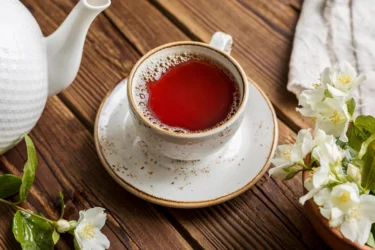
Tannins are naturally occurring compounds found in many plant-based foods and drinks, including tea, coffee, certain fruit juices, berries, pomegranates, nuts, legumes, herbs, and spices. While they are not harmful in moderation, tannins can interfere with iron absorption, particularly non-heme iron from plant sources. Iron is mainly absorbed in the duodenum and upper jejunum of the small intestine. When tannin-rich foods or beverages are consumed alongside iron-rich meals, especially those based on plants, they may bind to iron molecules in the gut and reduce the amount absorbed by the body3.
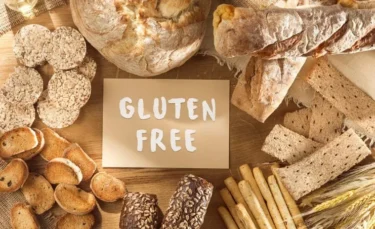
Gluten is a protein found in wheat, barley, and rye. While it does not generally affect iron absorption in most people, those with coeliac disease which is an autoimmune condition in which gluten triggers damage to the lining of the small intestine may experience difficulty absorbing iron and folate, leading to anaemia. In such cases, avoiding gluten is essential to prevent further intestinal damage and support nutrient absorption. However, for individuals without coeliac disease or gluten sensitivity, there is no need to avoid gluten as part of anaemia management4.
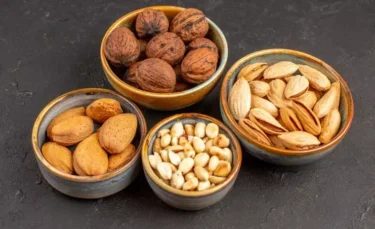
Phytates, found in foods such as legumes, whole grains, nuts, and brown rice, can reduce the absorption of non-heme iron in the digestive tract by binding to it. This is mainly a concern for individuals with iron-deficiency anaemia, as reduced iron absorption can worsen their condition. However, rather than avoiding these nutritious foods entirely, it is advisable to avoid consuming them at the same time as iron-rich meals. Food preparation methods such as soaking, sprouting, or fermenting can also help reduce phytate content and improve iron absorption5.
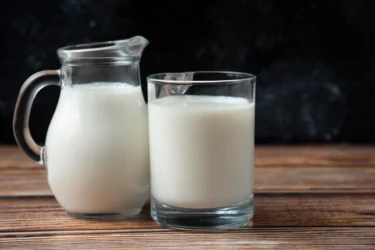
Calcium hinders iron absorption and therefore consuming calcium-containing food products in combination with other iron-rich foods can affect how much iron is being absorbed by your body. Dairy foods like milk, yoghurt and cheese should be avoided for this reason. Therefore, it is advisable to take calcium-containing foods at different times5.
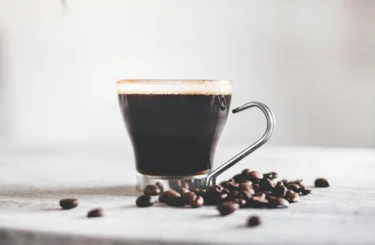
Polyphenols, or phenolic compounds, are naturally occurring substances found in foods such as cocoa, coffee, apples, certain spices, and walnuts. These compounds can inhibit the absorption of non-heme iron, particularly when consumed alongside iron-rich plant-based meals. However, these foods do not need to be completely avoided. Instead, it is advisable for individuals with iron-deficiency anaemia to consume polyphenol-rich foods separately from iron-rich meals to support better iron absorption6.

Excessive alcohol consumption can cause or worsen anaemia and is linked to several other health concerns. Alcohol may suppress bone marrow function, leading to reduced red blood cell production. It also interferes with erythropoiesis, the process of red blood cell formation, resulting in abnormally large red cells (macrocytosis) and shorter red cell lifespan. Additionally, alcohol can impair the absorption of key nutrients such as iron and folic acid, both of which are essential for haemoglobin synthesis and healthy red cell development7. For these reasons, individuals with or at risk of anaemia are advised to limit or avoid alcohol, in consultation with their healthcare provider.

In some cases, some medications may trigger the immune system to mistakenly identify the body’s own red blood cells as foreign, leading to their premature destruction, a condition known as drug-induced haemolytic anaemia. This may occur through immune-mediated reactions, such as with penicillin or cephalosporins, or through oxidative stress, particularly in individuals with enzyme deficiencies like G6PD deficiency. Drugs that have been associated with haemolytic anaemia include levodopa, certain non-steroidal inflammatory drugs (NSAIDs), and related compounds8. These medicines should only be used under medical supervision, and individuals with a history or risk of haemolytic anaemia should consult their doctor before starting any new medication.
Also Read: 11 Ways In Which Sugar Harms The Body!
Certain factors can increase the risk of anaemia1:
Also Read: 7 Effective Ways To Treat Anaemia At Home
Anaemia is a common but manageable condition when identified early and treated appropriately. Understanding its causes, risk factors, and dietary influences is essential for effective prevention and management. Always consult a healthcare professional for proper diagnosis and personalised care.
Also Read: HOMA-IR Test – A Test That Can Predict Diabetes
1. Turner J, Badireddy M, Parsi M. Anemia [Internet]. National Library of Medicine. StatPearls Publishing; 2023 [cited 2025 Jun 18]. Available from: https://www.ncbi.nlm.nih.gov/books/NBK499994/
2. Anmar M K Al-Maamori. REVIEW OF ANEMIA: TYPES AND CAUSES [Internet]. 2023 [cited 2025 Jun 18]. Available from: https://www.researchgate.net/publication/373434922_REVIEW_OF_ANEMIA_TYPES_AND_CAUSES
3. Delimont NM, Haub MD, Lindshield BL. The Impact of Tannin Consumption on Iron Bioavailability and Status: A Narrative Review. Current Developments in Nutrition [Internet]. 2017 Jan 19 [cited 2025 Jun 18];1(2):1–12. Available from: https://www.ncbi.nlm.nih.gov/pmc/articles/PMC5998341/
4. Martín-Masot, Nestares, Diaz-Castro, López-Aliaga, Alférez, Moreno-Fernandez, et al. Multifactorial Etiology of Anemia in Celiac Disease and Effect of Gluten-Free Diet: A Comprehensive Review. Nutrients [Internet]. 2019 Oct 23 [cited 2025 Jun 18];11(11):2557. Available from: https://www.mdpi.com/2072-6643/11/11/2557/htm
5. da Silva Lopes K, Yamaji N, Rahman MO, Suto M, Takemoto Y, Garcia-Casal MN, et al. Nutrition-specific interventions for preventing and controlling anaemia throughout the life cycle: an overview of systematic reviews. The Cochrane Database of Systematic Reviews [Internet]. 2021 Sep 26 [cited 2025 Jun 18];9(9):CD013092. Available from: https://pubmed.ncbi.nlm.nih.gov/34564844/
6. Xu T, Zhang X, Liu Y, Wang H, Luo J, Luo Y, et al. Effects of dietary polyphenol supplementation on iron status and erythropoiesis: a systematic review and meta-analysis of randomized controlled trials. The American Journal of Clinical Nutrition [Internet]. 2021 Apr 19 [cited 2025 Jun 18];114(2):780–93. Available from: https://www.researchgate.net/publication/351006870_Effects_of_dietary_polyphenol_supplementation_on_iron_status_and_erythropoiesis_a_systematic_review_and_meta-analysis_of_randomized_controlled_trials
7. Paramastri R, Hsu CY, Lee HA, Lin LY, Kurniawan AL, Chao JCJ . Association between Dietary Pattern, Lifestyle, Anthropometric Status, and Anemia-Related Biomarkers among Adults: A Population-Based Study from 2001 to 2015. International Journal of Environmental Research and Public Health [Internet]. 2021 Mar 26 [cited 2025 Jun 18];18(7):3438. Available from: https://pmc.ncbi.nlm.nih.gov/articles/PMC8037593/
8. Prabhu K, Warricker F, Almilaji O, Williams E, Snook J. Role of prescribed medication in the development of iron deficiency anaemia in adults—a case–control study. BMJ Open Gastroenterology [Internet]. 2024 Jun [cited 2025 Jun 18];11(1):e001305. Available from: https://pmc.ncbi.nlm.nih.gov/articles/PMC11217774/
Disclaimer: The information provided here is for educational/awareness purposes only and is not intended to be a substitute for medical treatment by a healthcare professional and should not be relied upon to diagnose or treat any medical condition. The reader should consult a registered medical practitioner to determine the appropriateness of the information and before consuming any medication. PharmEasy does not provide any guarantee or warranty (express or implied) regarding the accuracy, adequacy, completeness, legality, reliability or usefulness of the information; and disclaims any liability arising thereof.
Comments

Leave your comment...
You may also like
Comments